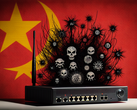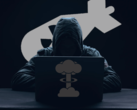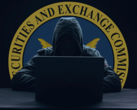The US Department of Commerce will ban Kaspersky from selling and updating its products, such as its popular antivirus (AV) software, to American individuals and businesses beginning July 20, 2024. The ban leverages the Department’s Information and Communications Technology and Services regulations to effectively force Kaspersky from the US market. This action comes years after the initial 2017 finding that Kaspersky was working with the Russian FSB security agency, which stole NSA secrets, and subsequent ban of Kaspersky software from all federal agencies.
Antivirus software is unique because it can access not only all files on a computer, but also examine every byte of data inside these files. AV software also has the ability to modify and transmit data from these files without user intervention.
After whistleblower Edward Snowden released secret National Security Agency (NSA) documents in 2015, the public became aware of the extensive hacking and snooping US security agencies were involved in. The NSA, along with the United Kingdom’s Government Communications Headquarters (GCHQ), was able to hack into Kaspersky to monitor its activities and internal data. They also targeted 23 other AV companies that included AVG, Avira, Bitdefender, and ESET, all used by hundreds of millions worldwide.
American AV vendors such as Microsoft and Norton were not targeted because it is very likely they were already working with US security agencies, especially given the broad use of Microsoft products across the US military.
Commerce Department Secretary Gina Raimondo explained, “Russia has shown it has the capacity and even more than that, the intent, to exploit Russian companies like Kaspersky to collect and weaponize the personal information of Americans and that’s why we are compelled to take the action that we’re taking today.” Kaspersky responded by stating, “Kaspersky believes that the Department of Commerce made its decision based on the present geopolitical climate and theoretical concerns,” and “Kaspersky does not engage in activities which threaten U.S. national security.”
Readers who are using Kaspersky can give other government security agencies their data by switching to top-rated alternatives such as Bitdefender, ESET, or Norton or going cold-turkey with Apple Macs.
















